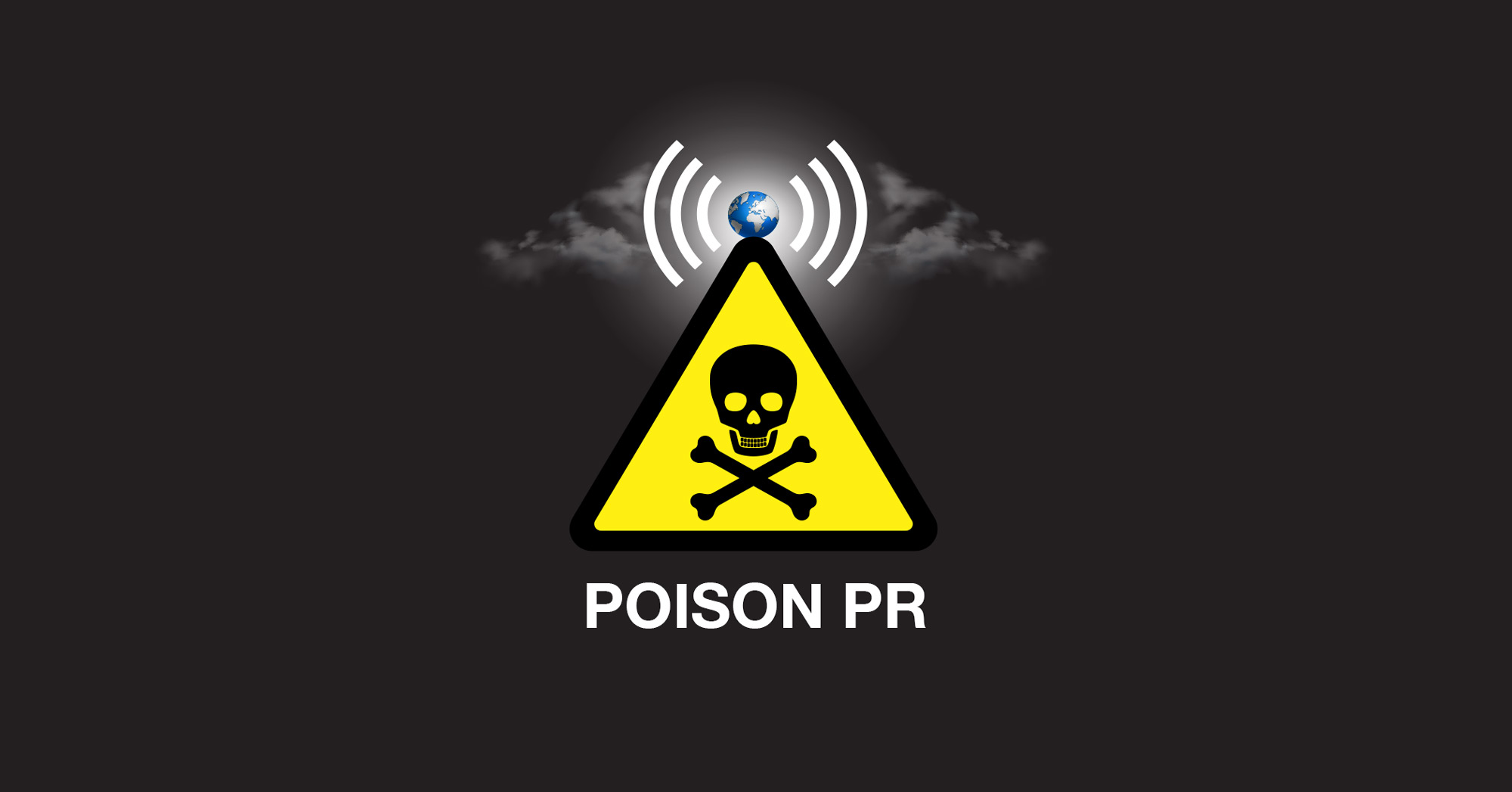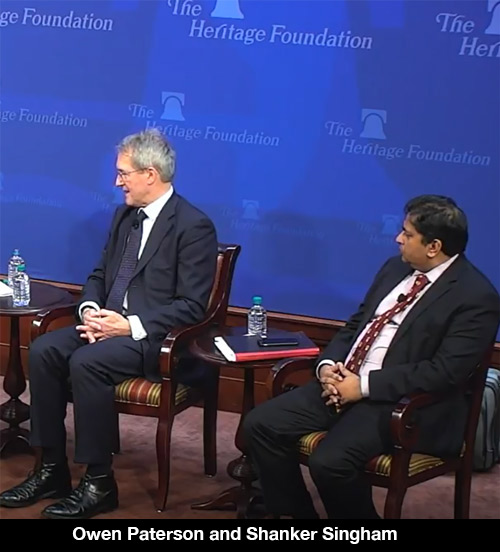
White House Writers Group (WHWG) and v-Fluence strategised to lower UK environmental standards to match those of the US. Report: Claire Robinson
When news broke recently about the US government-backed Poison PR project to covertly track and vilify critics of GMOs and pesticides, the focus was principally on the PR firm v-Fluence, founded and led by Jay Byrne, the former Monsanto communications chief. But another “strategic communications firm” also appears to have been involved in managing the project early on: the White House Writers Group (WHWG). And both these Poison PR firms – WHWG and v-Fluence – were hired by the first Trump administration to help them torpedo the EU’s Farm to Fork policy’s ambition of radically cutting pesticide use.
Now it has emerged that the White House Writers Group also worked with v-Fluence and the US government to turn Brexit into “a major opportunity for US agriculture and the nation as a whole” by lowering the UK’s environmental standards from EU levels, facilitating the entry of American GMOs and pesticide-contaminated products.
This is revealed in an April 2018 email from Joshua Gilder, senior director of the WHWG, to Lauren LaPointe of the US Dept of Agriculture’s Foreign Agricultural Service (USDA FAS), made public as part of the recent Lighthouse Reports investigation into Poison PR. Gilder copies in v-Fluence’s Jay Byrne. Gilder warns that the Brexit negotiations “are going very badly for the UK”. The reason? The EU was seeking a legally binding “non-regression clause” guaranteeing that the UK would not “lower environmental standards” from the current EU levels (see p.5 of the pdf).
Gilder explains the problem, as he perceives it, with the EU demand: “This ‘Brexit in name only’ approach would include [retain] the EU’s current phytosanitary [plant health], GMO, and pesticide regulations that massively discriminate against US agricultural and other exports. Should that happen, the opportunity promised by Brexit – that one of our largest trading partners would return to rational, non-discrimin[a]tory regulation – will be lost, probably forever.” At stake, Gilder wrote, was “a major opportunity for US agriculture and the nation as a whole”.
 Help was at hand, however, in the shape of an upcoming visit to the US by British trade negotiator Shanker Singham and Owen Paterson, former UK Secretary of State for the Environment, Food and Rural Affairs. Paterson and Singham, Gilder writes, were hoping that during this visit they could meet with Secretary of Agriculture Sonny Perdue on this “matter of utmost urgency for both Britain and the US, most especially US farmers”. Gilder says Paterson had led the back-bench effort “to rescue the Brexit negotiations”.
Help was at hand, however, in the shape of an upcoming visit to the US by British trade negotiator Shanker Singham and Owen Paterson, former UK Secretary of State for the Environment, Food and Rural Affairs. Paterson and Singham, Gilder writes, were hoping that during this visit they could meet with Secretary of Agriculture Sonny Perdue on this “matter of utmost urgency for both Britain and the US, most especially US farmers”. Gilder says Paterson had led the back-bench effort “to rescue the Brexit negotiations”.
At that time, these two offered a last-resort solution, according to Gilder: “Owen and Shanker believe that a call by the [US] administration for bilateral US-UK free trade negotiations – assuming Britain doesn’t first barter everything away to the EU – would give [then prime minister] Theresa May and her chief negotiator, David Davis, enough political leverage to resist the EU’s demands, back away from these ‘environmental’ agreements, and reassert its trade independence.”
The WHWG also hosted a “Brexit Working Lunch”, where Paterson and Singham were set to speak “about the growing threats to US agriculture from EU phytosanitary regulations and other non-tariff barriers and the opportunity offered by Brexit”. The USDA FAS lead was Ted McKinney. Other US government offices that were expected to send representatives were the Office of Agreements and Scientific Affairs (OASA), the Office of Country and Regional Affairs (OCRA), and the Office of Global Analysis (OGA).
While we found no direct evidence of US government taxpayer money being paid to the WHWG and v-Fluence in relation to the Brexit issue, it’s clear that weakening the UK’s GMO and pesticide regulations was on the agenda of the US government and their service providers at WHWG and v-Fluence.
Who are Paterson and Singham?
GMWatch readers may recall that in 2021 Owen Paterson felt it necessary to resign as an MP when facing suspension by the Parliamentary standards watchdog after being found to have repeatedly lobbied the government on behalf of two companies that were paying him more than £100,000 a year. He was a longtime close ally of the pro-GMO and pesticides lobbies. Inquiries into who was paying for his overseas trips lobbying for GMOs, in fact, triggered the wider investigation into his lobbying ativities that directly led to his downfall.
Shanker Singham is a lawyer, free trade campaigner, and a Fellow of the free market think tank, the Institute of Economic Affairs, which has lobbied for the rapid adoption of GM crops in the UK.
According to BuzzFeed News, as the director of economic policy at the Legatum Institute, Singham had built such close links to the Eurosceptic Tories who made the political weather in Westminster that journalists referred to him as “the Brexiteers’ brain”. However, not everyone is impressed with the quality of his thinking. “They think he’s a total clown”, said one Conservative adviser. “Like any of these Brexiteers, he comes up with these ideas that aren’t workable. He’s a good blue-sky thinker, but on the practicalities and details he gets blown apart.”
UK environmental protections: What actually happened
In reality, the WHWG and v-Fluence need not have worried – the UK didn't require any encouragement to weaken its environmental standards away from those of the EU. It has made a whole host of changes to domestic laws to demolish EU-inherited environmental protections.
Although the UK did sign an environmental non-regression treaty with the EU as part of the Brexit deal, the language is weak, necessitating that any reduction in environmental protections must affect trade or investment between the parties before either party can be deemed to be in breach of the agreement.
Also, the UK government’s Environment Act, which came into force in 2021 after Brexit, includes a non-regression clause that relates to the introduction of new environmental law, but it allows for the government to proceed even where there is deemed to be a lowering of protection.
Since then, the UK government has drastically weakened environmental laws to speed up the path to market for GMOs:
* In 2022 the government voted through a law that removed environmental protections from GMO field trials in England. Developers are essentially able to self-declare, without having to prove, that their GMO could have occurred naturally and there is no longer any obligation to collect and destroy trial crops.
* In 2023 the government passed the Genetic Technology (Precision Breeding) Act, which removes from the requirements of the GMO regulations (health and environmental risk assessment, traceability, and labelling) a subclass of GMOs that the developer claims could have resulted from "traditional processes" like breeding. At the time of writing, the new Labour government is due to issue secondary legislation that will bring the Act into force.
There may not be any comeback on the UK government from our EU trading partners on this weakening of environmental laws, as the EU Commission and some sectors of the Parliament want to take the bloc down the same route that the UK has pioneered. They’re not getting it all their own way, however, and the file is currently blocked in the Council.
USDA hired Poison PR firms to help undermine Europe’s pesticide reduction policy
In 2020 the USDA contracted with WHWG for up to $4.9m. It was part of a USDA strategy to undermine the EU’s Farm to Fork initiative, an environmental policy which aimed to reduce pesticide use by 50% by 2030. v-Fluence was to provide “data” services as part of the WHWG contract, which also included access to its Bonus Eventus secret platform of derogatory profiles of GMO and pesticide critics, according to records obtained from the USDA. Records do not specify how the money was to be divided between the firms.
Payments to them stopped with the fall of the (first) Trump administration but an article in Le Monde argues that by then the damage had been done. Farm to Fork has since been proclaimed to be “dead”, with “industry” cited as a chief perpetrator of the murder.
Breach of privacy laws
In sum, the evidence brought to light by the Lighthouse investigation showed that the US government used taxpayers’ money to work with two shady PR firms to weaken the laws and policy on GMOs and pesticides in both the UK and the EU – to the benefit of the GMO and pesticides industry. Because of this clear-cut evidence of foreign interference in EU policy making, the European Parliament is being urged to call for an immediate investigation into Poison PR. And Reporters Without Borders (RSF) has called for all those involved in the covert profiling to be brought to justice. Lawyers say that their activities place them in clear breach of privacy laws that apply in the UK as well as the EU. And the US government appears to be complicit in all of this.










